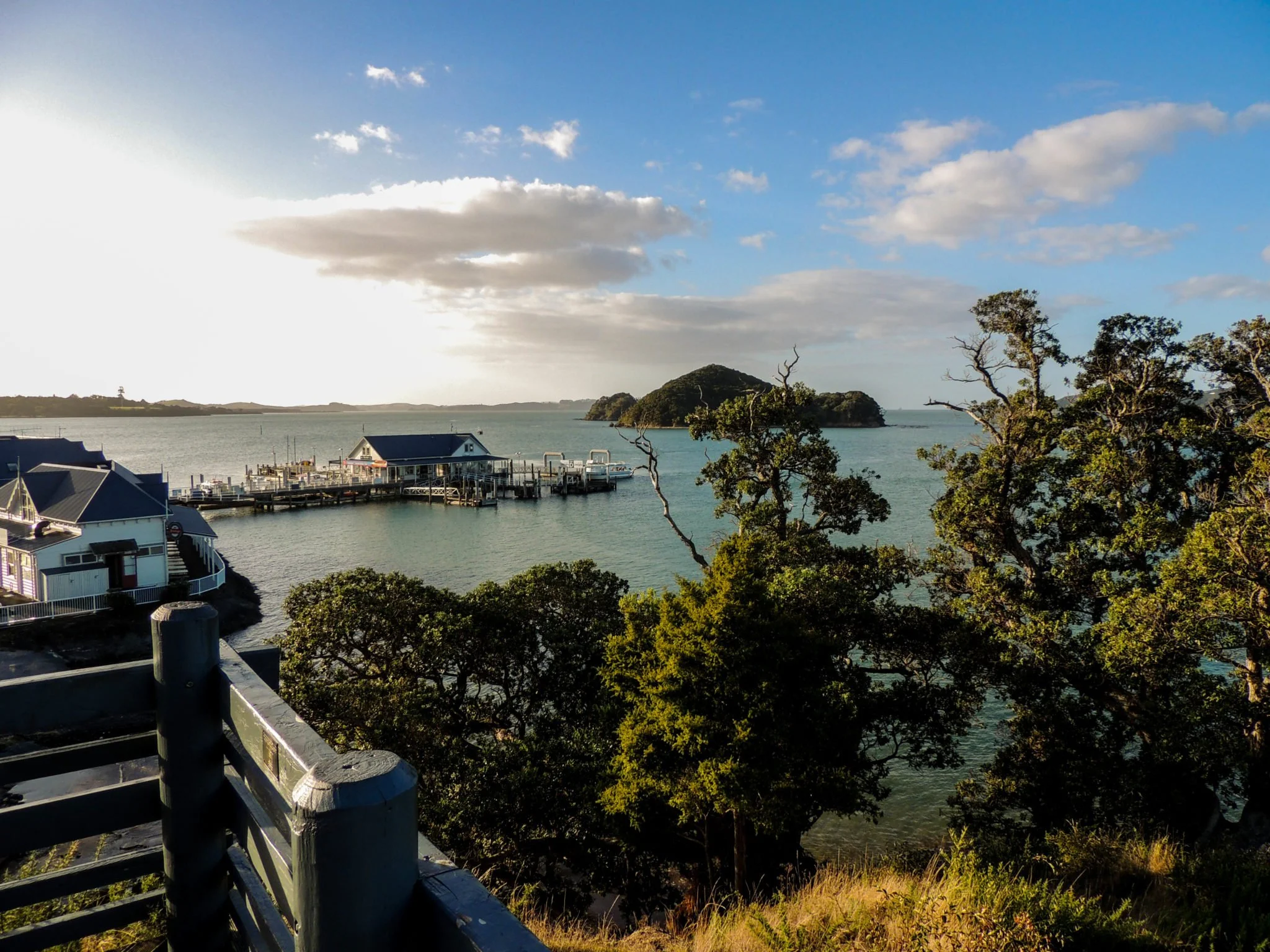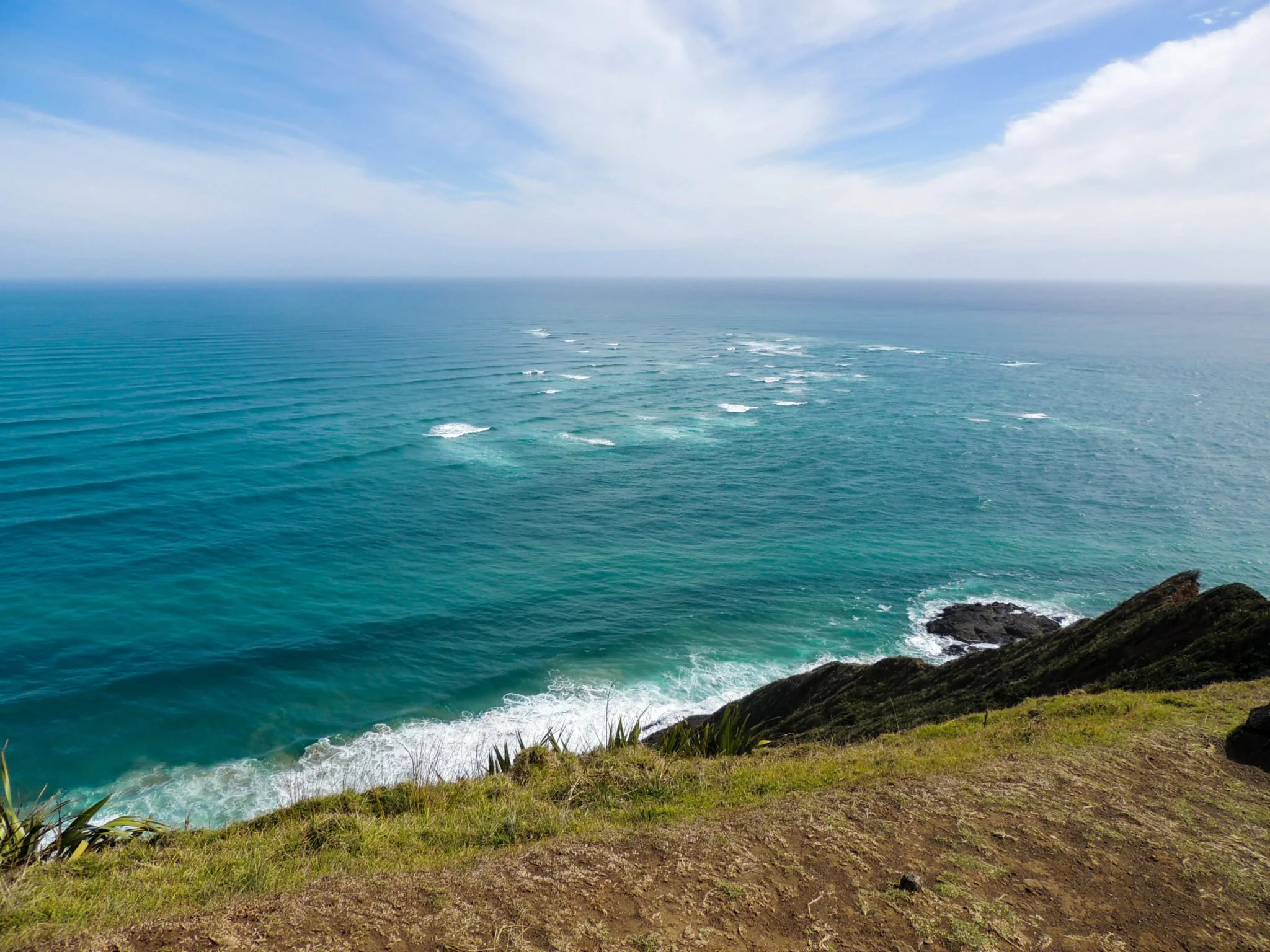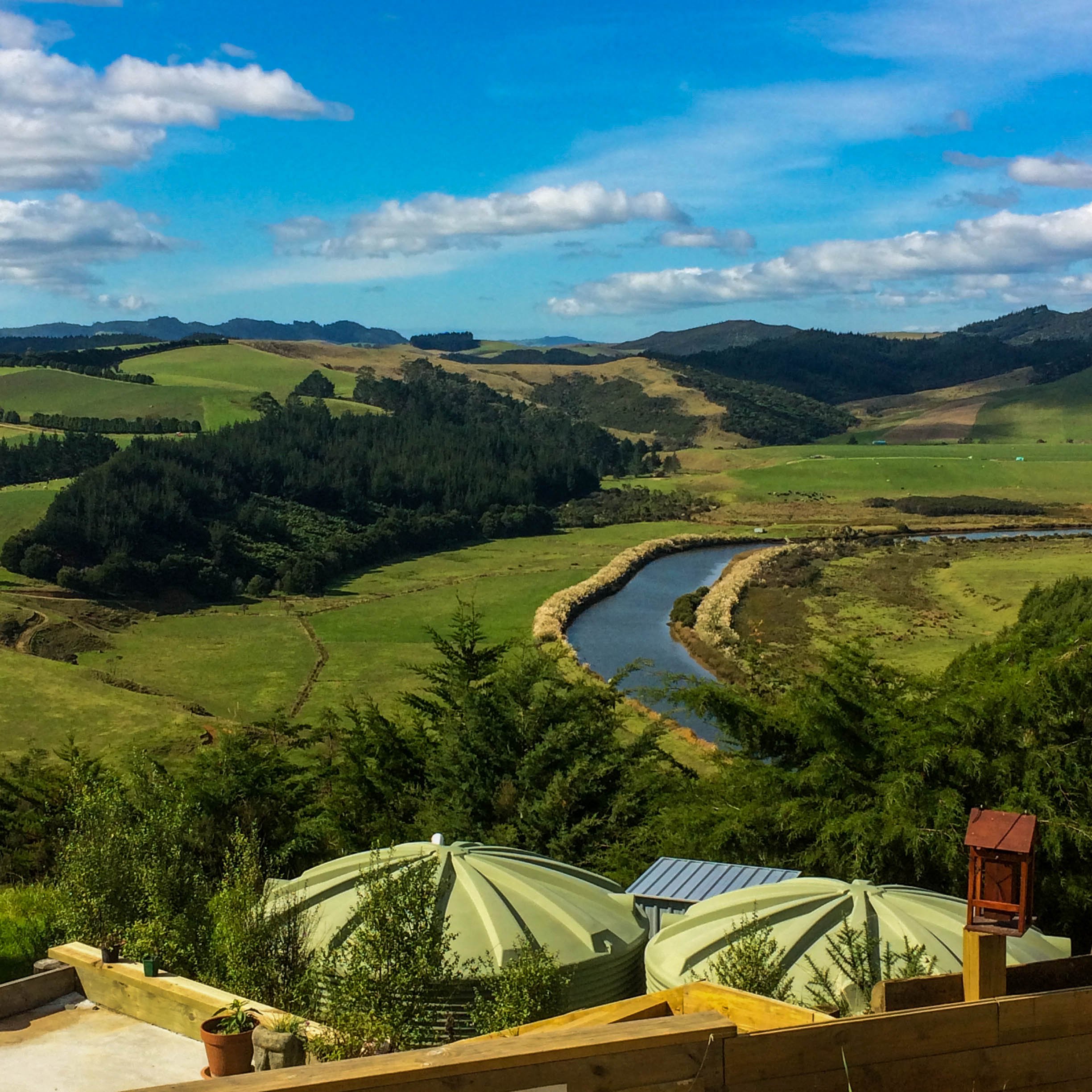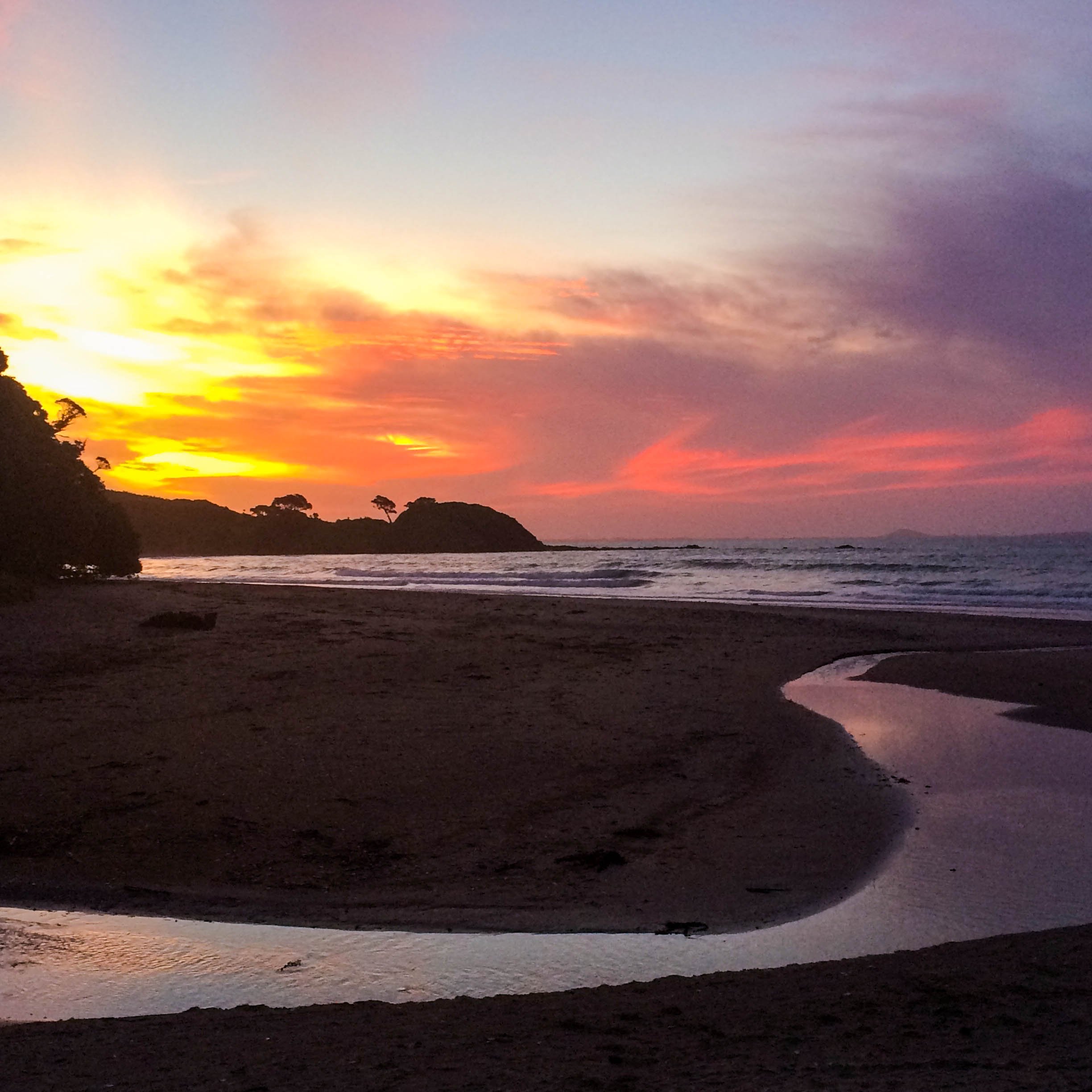
Cape Reinga: The Tip of the Bottom of the World
A week wasn’t a week in New Zealand unless accompanied by at least one major mental breakdown.
Each meltdown came in waves, and fear always acted as its driving force.
I’d suffered through Auckland and feared I wouldn’t enjoy the trip — only to find the Williams. I then got comfortable at their residence until it came time to face the fears again.
The momentthe safety net disappeared, the fear came back with a vengeance.
The next stop on the list after the Williams was Paihia, and after that, Mangonui. A woman named Margaret had messaged me off my ad looking for help around her olive estate. When I told her what I’d done for the Williams, she said my job would be similar.
Apparently I’ll just be weedwhacking my way through this country.
No matter. Stay grateful there’s another roof over your head.
I confirmed my interest with Margaret the morning I left the Williams. By the time I’d gotten to the bus, I hadn’t heard back to see if our schedules matched.
And I had no way for her to contact me once I was on the road.
When we arrived in Paihia and checked in for our trip up to Cape Reinga, I asked what time we would arrive in Mangonui the next day, and would it be all right if I hopped off and got picked up there.
“We don’t have time for this if you want to check into your hostel,” barked the receptionist.
Taken aback, I said, “I just want to know if I can jump off in Mangonui tomorrow? I have someone picking me up and they need a time and place.”
“Why don’t you just ask your bus driver tomorrow?”
Why don’t you just answer me now?
My impatient bus driver then ushered me out, and left me to wonder if I’d be stranded. Margaret had yet to answer, and I didn’t even know if I’d need to be dropped off.
I’d have to stay in Paihia a few days to catch the returning bus if I never heard anything. That wouldn’t have been all bad, but I hadn’t yet learned how to go with the flow. I tensed up and didn’t appreciate my surroundings.
Look at where you are!
I shouldn’t have ever needed the reminder, but the greater picture never makes sense in the moment.
The sun merged its way toward the horizon by the time we’d checked into our hostels, and still no word from Margaret.
I tried to befriend some bus mates, but my social anxiety got the better of me the first weeks. Before I came traveling, I read so much about making friends and memories, and I couldn’t wait for that.
What I found instead were a bunch of already-made cliques that made me feel like the constant new kid in school.
Having been fortunate enough to have never actually been the new kid in school, I didn’t know how to fit in. My decision to come solo was the hardest barrier of all to overcome. Anyone who knew me thought I was wild, carefree, observant, and fun — but only when I’m comfortable.
When I’m alone in a foreign country with no familiar faces, I’m quiet, reserved, shy, and timid.
My mind adjusted to the sheer discomfort I felt by stepping out of my comfort zone, and I shelled up. I had come to Paihia with Janine, and while I yearned for friendship, I also appreciated my opportunity to reflect.
I shared the hostel room with five other people, but I kept to myself. Isolation seemed better at the time. I’d only be seeing these people for one night, anyway, why should I bother getting to know them?
The troubled mentality that hindered my experience.
You can’t make friends if you don’t think even one night’s memories are worth it.
Even though no one else in the room knew me, they didn’t stick to their clique. They invited me to join them when they saw I was down. I told them about not knowing where I was going next, being new to travel, not knowing anyone or having any friends and just feeling a little lost.
And they knew exactly what I was going through.
I didn’t think anyone else would understand — they all looked so comfortable.
“That’s because we’ve been doing this for a while,” said one of the girls as she handed me a beer. “It takes some getting used to, but once you’re over the shock, you’ll love it!”
I joined in on the drinking games with a smile. The alcohol and socialization helped me destress from the chaos that was my life, and I finally enjoyed myself.
Then, around midnight, I received a confirmation from Margaret that her husband, Howard, would pick me up the next day.
Hallelujah.
The morning, however, started at 6 a.m. with an accompanying hangover.
I sat with my head in my hands on the curb while we waited for the bus. I cursed myself for not grocery shopping the night before, and telling myself I wouldn’t have to eat until the first stop.
So many mistakes to learn from.
“You don’t look like you’re doing so well.”
It was the voice of a British man I didn’t know, and I looked up as he sat next to me.
“Yeah, I’m just a little hungover is all.”
He pulled out two bananas from his bag. “Want a banana?”
“Are you serious?”
“Yeah, you look like you could use it.”
He introduced himself as Jeremy, and we were both solo, friendless travelers.
Turned out finding other solo travelers made it easy to make friends.
When the bus driver showed up, I nervously asked him the same hop-off questions I’d been yelled at over the previous day. He, however, danced circles around his mates in regard to niceness. He gave me a drop-off time and location with no problem, and told me not to worry about anything.
Today was meant to be a day to relax and have a good time, not worry about the stresses of travel.
A lot of drivers and check-in folk should take a note from his book.
From there, we went on to see New Zealand’s first house before we made our way over to the 90 Mile Beach.
After cruising along the beach for a while, it came time for the action of the trip:
Sand boarding.
The hike up the dune is the worst part of the adventure. However, once you’ve summited and laid down on your boogie board, it’s worth it.
At the tip of the island we found a lighthouse where we viewed the meeting of the Tasman Sea and the Pacific Ocean. I had never seen two bodies of water merging together, and I couldn’t take my eyes away.
All of the turquoise was the Tasman Sea, while the sapphire represented the Pacific. A zigzag ran between the colors, and the waves clashed where the two currents met.
Once we departed the Cape, we drove back over the 90 Mile Beach before we entered into Mangonui.
The rest of the bus stayed in the Fish ’n’ Chips shop, but I hopped off the bus and looked for Howard.
Margaret and Howard had a beautiful olive estate on the outskirts of Mangonui. I hadn’t expected such luxurious accommodation, and I stared at the house with wide eyes and a dropped jaw when I got the tour.
In my own wing of the house, I had a large queen bed with a down comforter, a rain shower in my bathroom, and one of the most beautiful views I’ve had.
The job, on the other hand, sucked.
I reminded myself a multitude of times about my desire to have a grateful, thankful, and helpful heart — but I needed the reminding often.
Like most people, Margaret and Howard were incredibly busy, thus their need for help. With that, they left me alone for the most part to complete the job by myself.
Apart from feeling highly uncomfortable in a place that was not my own, it could have been worse.
The job itself consisted of pulling branches off nearly half a mile’s worth of fence on a ridiculously steep slope.
After the tree’s recent trim, all of the brush had fallen along the fence line. I was to clear all of the brush off the fence and put it into little piles across the way.
I hated every second of it.
Even Margaret and Howard admitted it was a brutal job, but someone had to do it, and in the end, I’m glad it was me. It challenged my desire to have a grateful heart, and built character through that.
Each time I felt angry, I stopped, turned around, and said, “Look at where you are right now. Just look. You could be stuck back at your restaurant serving angry customers, but look where you are instead.”
Perhaps it was a little silly, but it got me through.
I was only happy to stick around for four days instead of two weeks.






